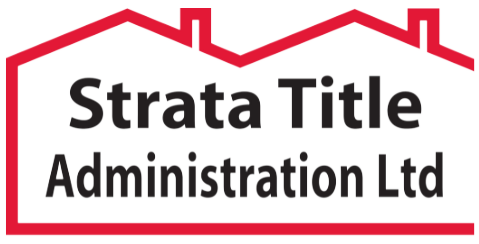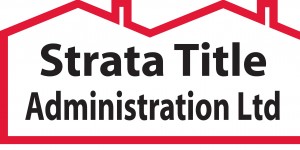Insuring A Body Corporate
A Body Corporate has a statutory responsibility to be insured in a specialised way, which places obligations on the insurer as well as the Body Corporate.
The principal insurance policy, as defined by Section 136(1) of the Unit Titles Act 2010, requires a Body Corporate to “Insure and keep insured all buildings and other improvements on the land to their full insurable value”.
- Body Corporate Insurance
- Additional Insurance Cover
- Insurance Policy Costs
- Determining The Insurable Value
- Domestic Contents Cover
- The insurer must reinstate the damage up to the sum insured, which is defined in the reinstatement insurance valuation upon which the insurance is based.
- All principal and accessory units, and all common property, must be insured by the body corporate, unless all principal and accessory units in the Unit Plan are standalone units in which case the body corporate may by special resolution resolve that the individual owners may insure their principal and accessory units. The body corporate remains responsible for insuring the common property.
- Once an insurer has taken on the risk of a principal insurance policy for a body corporate, it can’t go “off risk” unless it serves a notice on the body corporate (or its insurance broker and any mortgagee of which the insurer has notice) to the effect that the policy will lapse or be cancelled on the date specified in the notice. That date must be at least 30 days after the date the notice was served. Competitive insurance quotations are obtained by Strata via independent insurance brokers for consideration and acceptance by the body corporate. The insurance quotations are based on reinstatement insurance valuations obtained for the body corporate. Strata discloses that it may receive a fee from valuation companies and insurance brokers relating to placing the insurance.
A Body Corporate often decides to insure against liabilities over and above the reinstatement insurance policy required by the Unit Titles Act 2010.
The most common additional risks insured against are:
- Statutory Liability, which provides for fines and legal defence costs due to unintentional breaches of each of the Resource Management Act, the Building Act and the Health and Safety in Employment Act
- Public Liability, which protects the Body Corporate from any claim for loss sustained by a tradesman while working onsite, or injury to an owner or to a visitor as a result of some malfunction of common property, such as an accident in a lift or in the Body Corporate’s swimming pool or gymnasium
- Professional Indemnity, for the Chairperson and Committees administering the affairs of the Body Corporate
The Earthquake Commission (EQC) and the New Zealand Fire Service (NZFS) apportion their charges on the basis of their estimate of the reinstatement value, unless the Body Corporate provides a registered valuer’s assessment of the indemnity value. So, not only does the annual reinstatement insurance valuation allow the Body Corporate to obtain the insurance cover required by the Unit Titles Act 2010, but it also lowers the cost of the levies paid to the EQC and NZFS.
Because insurance companies wish to define the limit of their risk under any policy, a registered valuer prepares an annual reinstatement insurance valuation for your Body Corporate. The Body Corporate’s insurer calculates the level of insurance premium in accordance with this valuation amount.
A Body Corporate must have sufficient insurance cover to reinstate all the buildings and other improvements to their full insurable value, should they be destroyed by fire, earthquake or other disasters. A valuer is used to assess what it would cost to demolish a damaged building, bulldoze out the remains, and to redesign and reinstate the Body Corporate (including architect’s fees, the cost and time delays in obtaining town planning and building consents, and the effect of inflation on building costs during the period of reconstruction).
Expert knowledge is needed to accurately determine replacement value, indemnity value, demolition costs and the impact of inflation. For this reason, a registered valuer is usually brought in to prepare a reinstatement insurance valuation for your Body Corporate on the assumption that it suffers a 100% loss by fire or earthquake on the last day of the insurance year.
Most insurers for Bodies Corporate provide cover up to a limit of $5000 for landlord’s fittings, home appliances, curtains, drapes and fixed floor coverings in any residential unit that’s tenanted.
However,if the unit is occupied by the owner, the insurers expect these items will be covered under the owner’s domestic contents policy.
We recommend that every unit owner periodically makes an inventory of chattels, fixtures and fittings and takes photographs of them. The photos will be well worth the effort when it’s time to claim for a loss under your domestic contents policy and/or for reinstatement under the Body Corporate’s insurance policy.
Strata recommends you check your domestic contents insurance policy to make sure you’re adequately covered. To streamline the process in the event of a claim, you might choose to insure your domestic contents with the same insurer that covers the Body Corporate.
- Insurance For Internal Fit-Outs And Landlord Fixtures
- Insurance For Loss Of Rent
- Insurance Claims
- Claim Forms
If you own a non-residential unit, please check whether you are adequately covered by insurance for damage to landlord’s fixtures and fittings. Any internal partitions erected in a unit after it’s purchased are unlikely to be covered by the Body Corporate’s insurance policy.
Although Strata obtains a reinstatement insurance valuation for the Body Corporate, the registered valuer will not consider internal fit-outs to the unit following the purchase of the title, unless there has been a specific request to the valuer from the Body Corporate to assess these values.
Residential: Most major insurance companies have, as part of their Body Corporate insurance policies, an automatic loss of rentals cover of up to $25,000 per residential unit, if the unit is tenanted. If you own a residential unit that is tenanted, please check to see if the Body Corporate’s insurance policy covers loss of rentals, and if that cover is adequate for you.
Non-Residential: In a non-residential Body Corporate where a number of units are tenanted (such as an industrial or retail complex), the Body Corporate should discuss whether it wants a loss of rentals extension on its Body Corporate insurance cover. Normally it’s a good idea for a non-residential Body Corporate to have loss of rentals cover, and a provision for up to $5000 for claim preparation fees. That means if the property is damaged and the businesses operating from the units need to relocate, the rental incomes are protected.
The Body Corporate’s insurance policy will have been arranged via an independent insurance broker. When you notify us of an insurance claim, we will either direct you to the insurance broker or arrange for an insurance claim form to be sent to you.
Alternatively, you can download a claim form our major broker Wallace Mclean Ltd
If the claim is likely to be substantial (e.g. repairs in excess of $1,500), the insurer may appoint an assessor to determine the extent of damage. If your unit is damaged and no longer secure, please take whatever steps you think are appropriate to make the unit secure, and notify Strata so we can arrange for an insurance assessor to call as soon as possible.
Payment of the insurance excess by the Body Corporate or the owner making the claim depends on what the Body Corporate has decided at its Annual General Meeting. This is recorded in the minutes of the meeting, which will have been sent to you by Strata.


